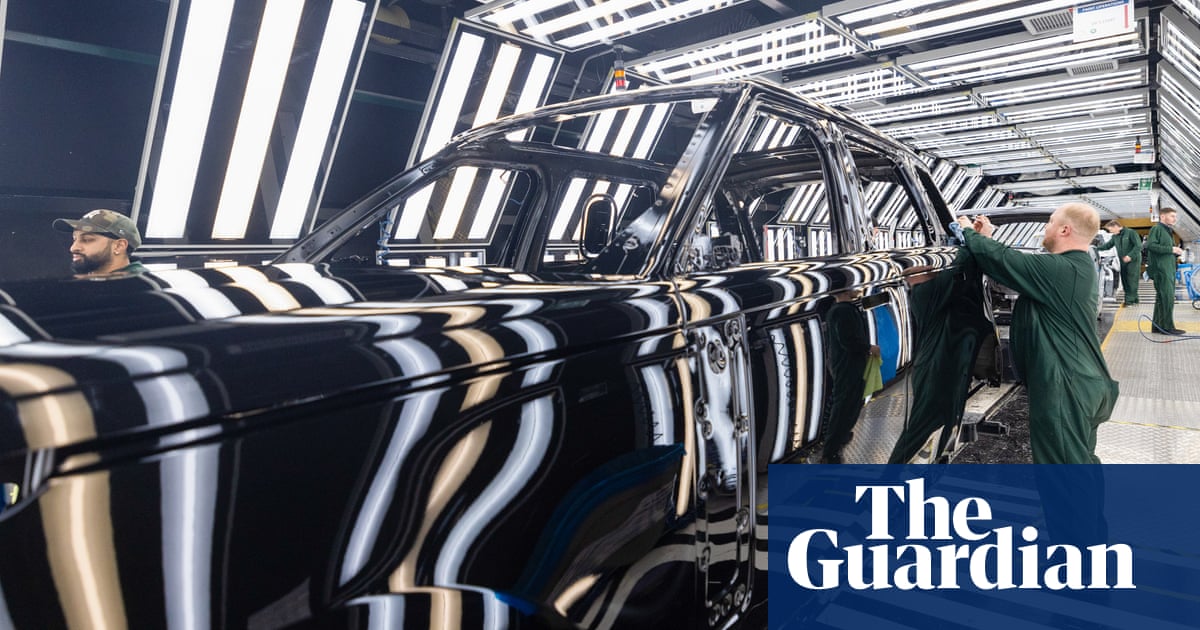The UK’s limited trade deal with the US has immediately prevented job losses at Jaguar Land Rover’s plant in the West Midlands, Britain’s ambassador to the US has said.
“This deal has saved those jobs,”Peter Mandelsonsaid in an interview on CNN. “That’s a pretty big achievement, in my view, and I’m very pleased that the president has signed it.”
Government sources said JLR had plans for imminent cuts among its 30,000 staff in Solihull but had not informed unions in the hope that a deal with the US could be struck to eliminate the 25% tariffs on exports of cars to the US.
Donald Trump’s import taxes had threatened to cripple British high-end carmakers beforethey were reduced from 27.5% to 10%in a deal announced on Thursday by Trump and Keir Starmer, with JLR only last week resuming exports to the US aftera 30-day pausefollowing the US president’s announcement of tariffs last month.
Government insiders confirmed the decision to go for a quick deal while they could, announcing what they said wasa breakthrough agreementto eliminate tariffs on car and steel exports.
“It was important to us to be able to bank the progress that we had made at this stage,” said an insider.
The UK business secretary, Jonathan Reynolds, told the BBC’s Newsnight programme on Thursday that the UK was at risk of thousands of people losing their jobs in the automotive sector within days, with one senior government insider indicating the job losses would have been at JLR.
Reynolds said: “This was very, very serious. It means people would have lost their jobs without this breakthrough, and it would have been a real economic hit to the UK. We got to a position where we’re able to make announcements … that have averted some very difficult things happening in the UK.”
Darren Jones, the chief secretary to the Treasury, suggested the real life impact of the loss of thousands of jobs in the car sector would have been far deeper and could have affected more than 100,000 families employed directly and indirectly in the sector.
Adrian Mardell, the JLR chief executive, hailed the agreement, saying it would help to sustain 250,000 jobs. “We warmly welcome this deal which secures greater certainty for our sector and the communities it supports,” he said.
Sign up toBusiness Today
Get set for the working day – we'll point you to all the business news and analysis you need every morning
after newsletter promotion
UK car exports to the US attracted a 2.5% tariff before Trump decided to slap a further 25% import tax on foreign cars.
The 25% tariff meant that, if passed on to the consumer, the price of the lowest-cost Range Rover Evoque could have risen by nearly $12,500 (£9,400) and added $27,000 to an entry-level Range Rover that typically sells for more than $100,000.
Tariffs apply on delivery date rather than order date, which means vehicles shipped last week will no longer be subjected to the 25% tariff.
